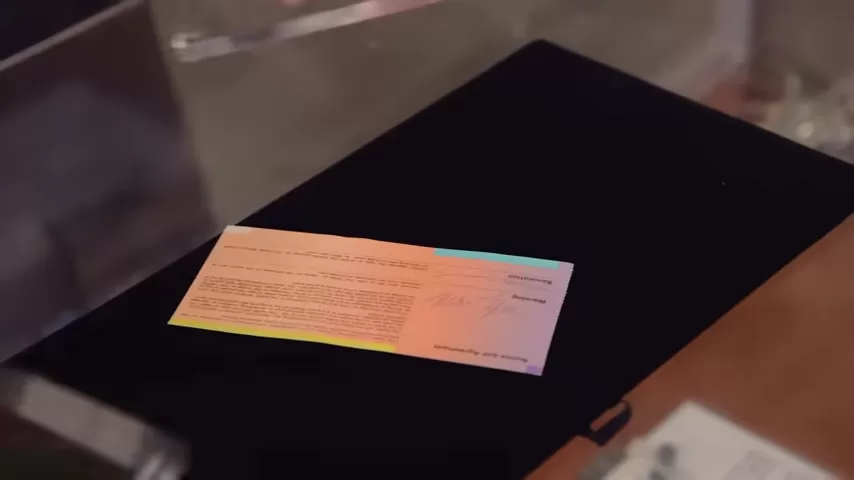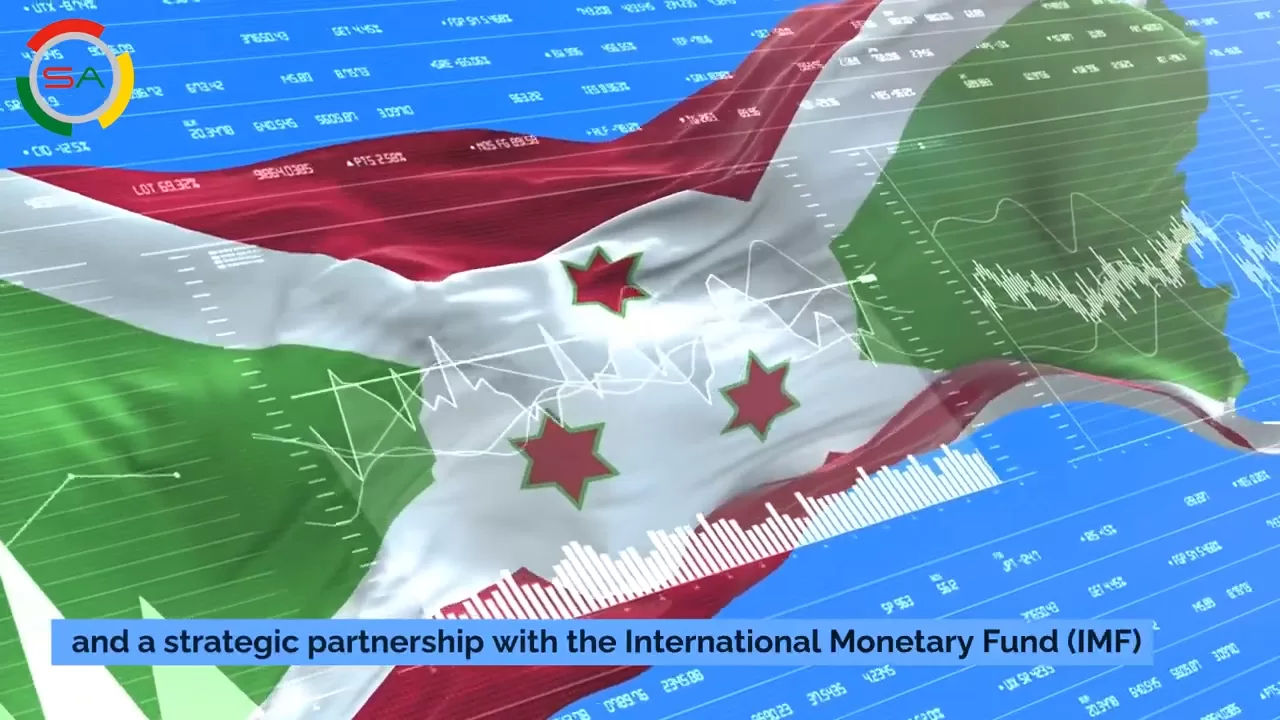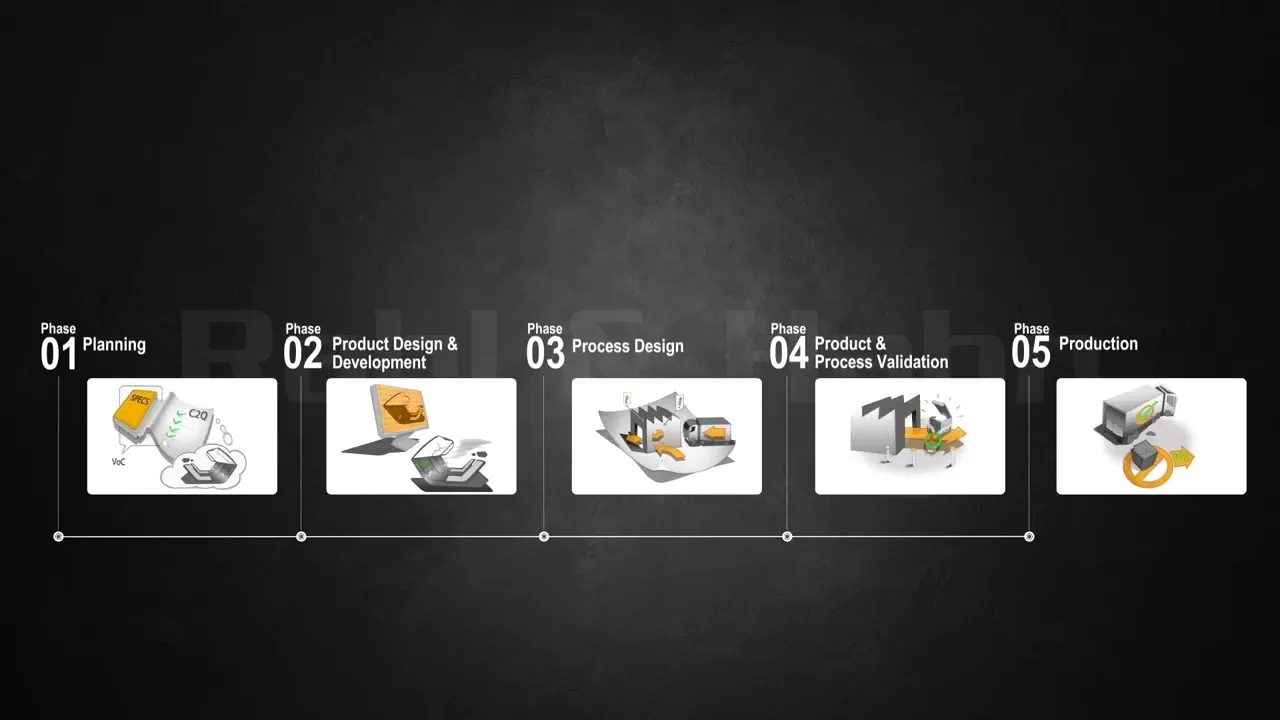Some sports collectibles are rare. Others are iconic. But once in a while, something appears that combines historical weight, cultural significance, and sheer nostalgia into one surprisingly powerful item.
That’s exactly what happened when a man walked into a Las Vegas pawn shop carrying what looked like an old stub from the 1984 Los Angeles Olympic Games. At first glance, it was a typical used ticket—worn, sentimental, and likely overlooked by most collectors. But this ticket wasn’t ordinary. It bore two autographs: Evander Holyfield and Mike Tyson.
“I got a 1984 Olympic boxing ticket stub,” the owner explained, “with a few autographs on it you might be interested in.”
Indeed, they were.
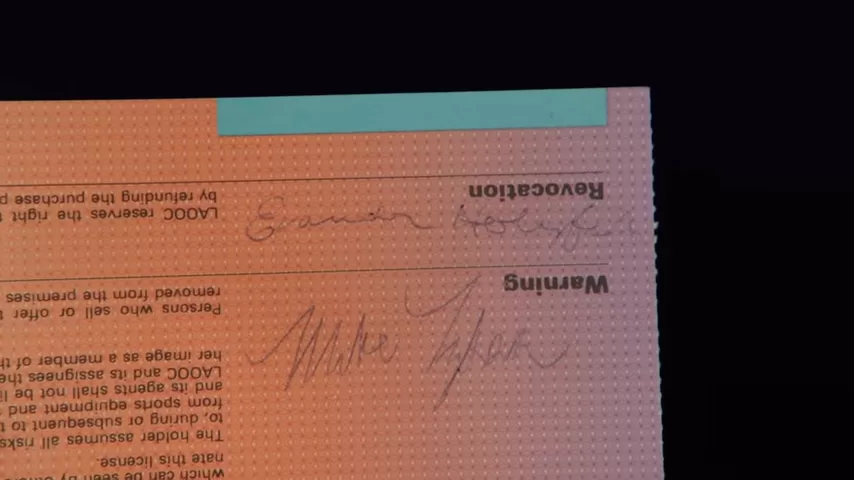
Two Names. One Moment. Endless Impact.
Both Mike Tyson and Evander Holyfield would later become legends of heavyweight boxing. But in 1984, they were still amateurs. Tyson, just 17, was an alternate on the U.S. boxing team—young, unknown, and overshadowed. Holyfield, already fighting in the light heavyweight division, would go on to win bronze at the Games.
“Back then,” the shopkeeper joked, “Holyfield had two ears.”
The story behind the signatures made the ticket even more interesting. The seller had been a passionate boxing fan in the 80s, attending the events daily. He struck up a casual friendship with members of the U.S. boxing team, including Tyson—who, as an alternate, wasn’t participating but was still traveling with the team.
“He looked down, a little out of place,” the seller remembered. “So I took him to lunch. I just wanted to lift his spirits a little.”
Later, he met Holyfield and asked for his signature as well. It wasn’t a formal autograph session. These weren’t yet celebrities. That’s what makes the ticket so special—it captured a fleeting moment in sports history, just before these two names became synonymous with boxing greatness.
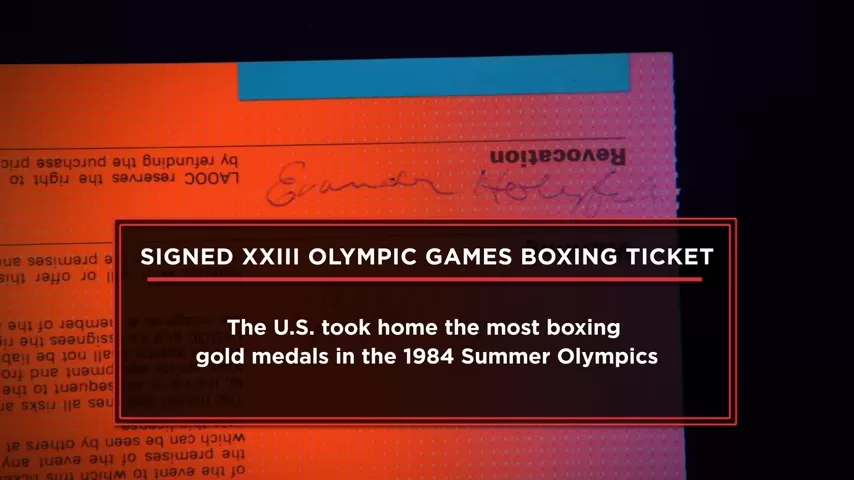
The Bite Heard ’Round the World
Of course, history would take a famously bizarre turn in 1997, when Tyson bit a chunk of Holyfield’s ear during their rematch—cementing both fighters as fierce rivals in one of boxing’s most infamous moments.
But this ticket predates all that. It comes from a more innocent time, when both fighters were kids with gloves and dreams. And that kind of provenance doesn’t come around often.
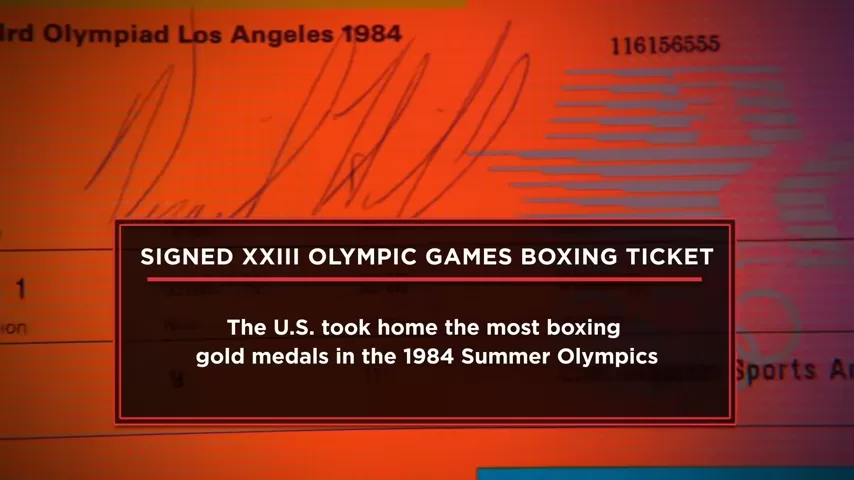
Enter the Expert: Are the Signatures Real?
The shop brought in Steve Grad, a respected autograph authenticator, to examine the ticket. His reaction said it all:
“You don’t really see this too often. These guys were just kids back then. No one was really asking them for signatures.”
Using a magnifier and years of experience, Steve studied the ink, pen type, and handwriting style. Both names were signed in blue ballpoint pen, consistent with the period. More importantly, the style of the Tyson signature matched one of the only known examples from that era.
“Tyson signatures from 1984 are extremely hard to find,” Steve confirmed. “This is one of the only ones I’ve seen. And it’s legit.”
Holyfield’s signature, while more common over the years, was also authentic. And the fact that both appear together—on a real Olympic item from a year that would mark their respective rise—was what pushed the value up significantly.
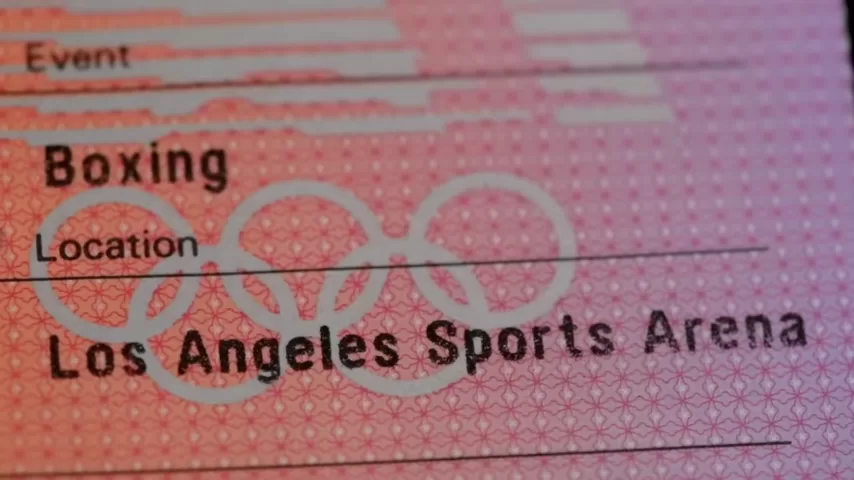
Valuation: What’s It Worth?
Steve didn’t hesitate: “You’re looking at about $2,000 in today’s marketplace.”
That stunned the seller, who had only been hoping for $500. His kids had told him it might be valuable, but even he hadn’t expected the ticket to be worth four times his asking price.
The shop offered $1,000—double what he wanted—but the seller politely declined.
“After holding it for 37 years,” he smiled, “I can hold on for a couple more.”
It wasn’t about greed. It was about realizing the true significance of what he had.
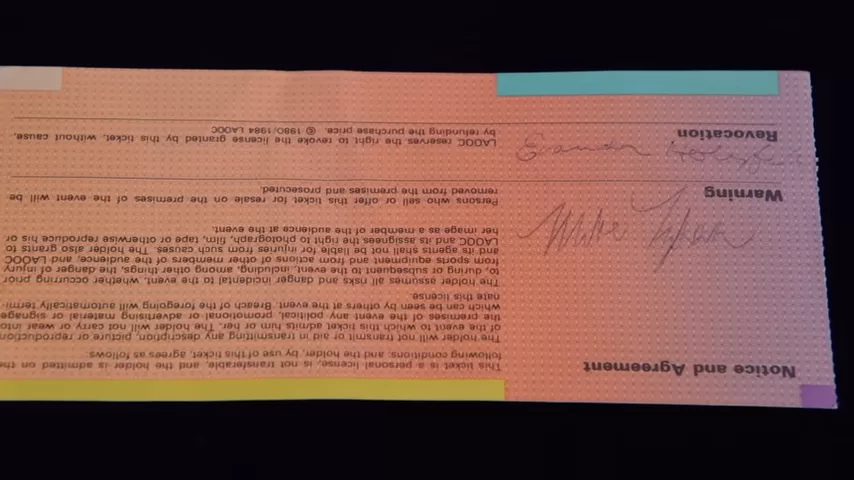
Why It Matters: Sports, History, and Human Connection
This ticket isn’t just a collector’s item. It’s a tangible link to one of the most turbulent, dramatic, and legendary sagas in modern sports. Before championship belts, before scandal, before global fame, there was this moment—captured in blue ink on Olympic cardstock.
It’s also a story of quiet generosity. The man who once bought lunch for a downcast teenager named Mike Tyson never expected that kind act would come back decades later with a $2,000 price tag attached. It’s a reminder that sometimes, the most powerful investments aren’t financial.
“You can’t take the ticket with you,” the seller said. “But maybe you can do some good with the money.”
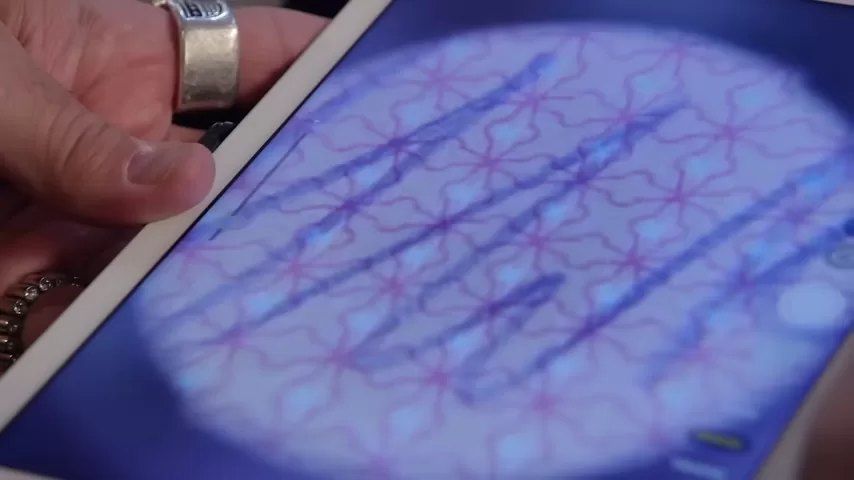
The Collector’s Angle
For memorabilia collectors, this item is a dream:
- Period-authentic Olympic ticket
- Dual signatures from two icons
- Extremely rare adolescent autograph from Tyson
- Historical context linking to a legendary rivalry
Most signed items come from fan conventions, after parties, or organized meet-and-greets. But this came from a sidewalk encounter in the middle of an Olympic off-day. That makes it not just rare—it makes it personal.
Final Thoughts: Frame It or Flip It?
The seller ultimately chose to keep the ticket, planning to frame it and display it proudly. And really, who could blame him?
Whether it’s worth $500, $2,000, or far more to the right collector, the value of this piece goes beyond price. It’s about a moment in time—a brush with greatness before the world knew what it had.
For fans of boxing, Olympic history, or underdog stories, it doesn’t get much better than that.
